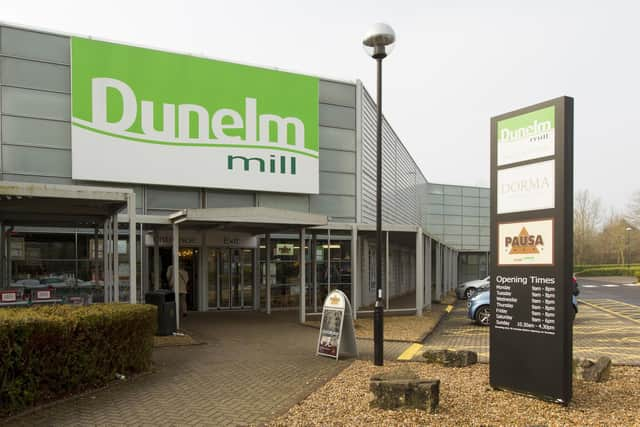Homewares firm Dunelm sees profits fall as costs bite, but forecasts return to growth
The retail chain reported a 9.4 per cent drop in pre-tax profits to £192.7m for the year to July 1, down 7.8 per cent on a pro-forma 52-week basis despite total sales lifting 5.5 per cent on a 52-week basis to a record £1.6bn.
The group said the profits fall reflected “tight control of margin amidst inflation in our operating costs and our ongoing commitment to investment for the future”.
Advertisement
Hide AdAdvertisement
Hide AdConsumer behaviour remains “unpredictable”, according to the firm, but it said it was pleased with trading so far in the new year and forecast growth in sales and pre-tax profits over 2023-24.


Dunelm said: “Consumers are still responding to their own cost-of-living pressures and there remains uncertainty as to what this means for discretionary spend.
“Against this backdrop we remain focused on our proposition and ensuring our customer offer is as relevant as ever.”
It said growth over the year ahead would be driven by higher sales by volume, while costs have also started easing, particularly for shipping.
Advertisement
Hide AdAdvertisement
Hide AdDunelm said it had cut prices for shoppers as its own costs fell, with its “value proposition resonating well” with cash-strapped consumers.
Nick Wilkinson, chief executive of Dunelm, said: “In a period of extensive economic uncertainty, we have maintained our focus on enhancing our customer proposition, expanding our offer whilst staying fully committed to value and making every pound count.”
He said the group would continue to invest “where we see good returns, so that we can seize the various opportunities ahead”.
“As we manage the ongoing challenges, it is crucial that we do not lose sight of our longer-term ambitions,” he added.
Advertisement
Hide AdAdvertisement
Hide AdHalf-year results from the retailer showed sales lifted 6.1 per cent in the final quarter, matching growth in the previous three months.
Dunelm was founded in 1979 as a market stall business, selling ready-made curtains.
It opened its first shop in Leicester in 1984 and now has around 170 stores nationwide.
Earlier this week, it was revealed that B&Q owner Kingfisher had cut its full-year earnings outlook after profits dropped by a third, with wet weather and low consumer confidence dampening sales in Europe.
Advertisement
Hide AdAdvertisement
Hide AdThe retail giant told investors its statutory pre-tax profit fell to £317m from £474m in the half-year to the end of July.
Like-for-like sales were down by 2.2 per cent over the period, with stronger trading in the UK and Ireland offset by weaker consumer demand in France and Poland.
UK customers appear to be holding up better than those in France, where sentiment is historically low, Kingfisher’s chief executive Thierry Garnier said.
Speaking earlier this week, he said: “Overall, I think the consumer in the UK is relatively healthy.”
Advertisement
Hide AdAdvertisement
Hide AdHigher savings, a low unemployment rate, and fewer housing transactions could all be factors impacting consumer demand.
Kingfisher said it was planning to more proactively manage costs in the second half of the year, which could involve reducing temporary staff numbers and overtime and slowing the pace of store openings in some regions.